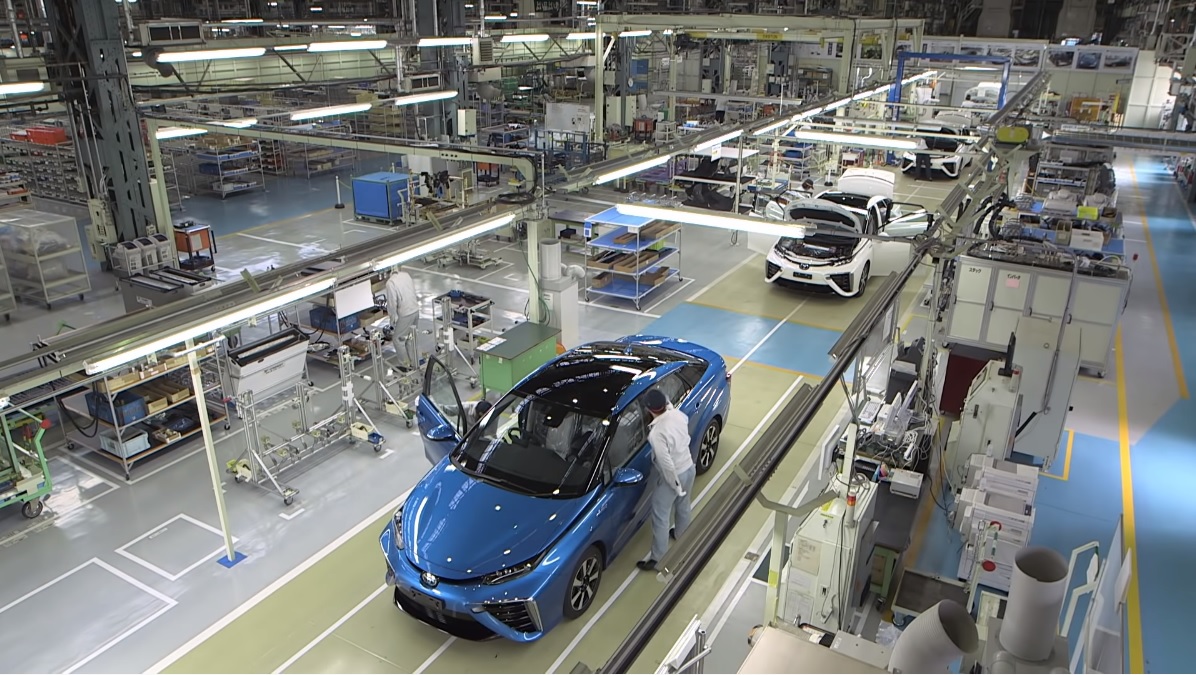Analyzing The Challenges Faced By Luxury Carmakers In China: A Case Study Of BMW And Porsche

Table of Contents
Intensifying Competition from Domestic Brands:
The rise of domestic Chinese luxury brands poses a significant threat to established players like BMW and Porsche. These homegrown brands are rapidly gaining market share, forcing international competitors to reassess their strategies. This intensified competition is driven by several factors:
- Growing consumer preference for homegrown brands: A surge in national pride and a desire to support domestic industries has led to increased consumer preference for Chinese luxury vehicles. This shift in sentiment is particularly strong among younger generations.
- Increased technological advancements and features in domestic luxury vehicles: Chinese brands are rapidly closing the technological gap, offering vehicles with advanced features, sophisticated designs, and competitive performance, often at more attractive price points.
- Aggressive pricing strategies employed by Chinese competitors: Domestic brands often leverage their lower manufacturing costs and government support to offer highly competitive pricing, putting pressure on the profit margins of international brands.
- Examples of successful Chinese luxury car brands and their strategies: Brands like Hongqi, BYD's luxury sub-brand Denza, and Nio are showcasing innovative designs, advanced technology, and aggressive marketing strategies, directly impacting the market share of established luxury carmakers in China. Their success underscores the need for international brands to adapt and innovate.
Shifting Consumer Preferences and Demands:
The Chinese luxury car market is not static; consumer preferences are constantly evolving. Luxury carmakers in China must adapt to these shifts to maintain competitiveness. Key changes include:
- Demand for electric vehicles (EVs) and hybrid models: The Chinese government's strong push towards electrification, coupled with growing environmental awareness among consumers, is driving a significant increase in demand for EVs and hybrid vehicles. Luxury carmakers need to invest heavily in their EV offerings to remain competitive.
- Increased focus on digital connectivity and advanced driver-assistance systems (ADAS): Chinese consumers, particularly younger buyers, highly value technological advancements like advanced driver-assistance systems, seamless connectivity features, and sophisticated infotainment systems.
- Growing preference for customized and personalized luxury experiences: The Chinese luxury consumer increasingly seeks bespoke experiences, demanding personalization options and tailored services that go beyond the standard luxury offerings.
- Importance of social media influence and brand storytelling: Social media plays a crucial role in shaping brand perception and driving sales in China. Effective social media strategies and compelling brand storytelling are essential for building trust and attracting customers.
Navigating Regulatory and Infrastructure Hurdles:
Operating in the Chinese market presents various regulatory and infrastructural challenges for luxury carmakers. These hurdles impact profitability and market access:
- Stringent emission standards and environmental regulations: China is implementing increasingly stringent emission standards and environmental regulations, requiring luxury carmakers to invest in cleaner technologies and comply with complex regulatory frameworks.
- Complex import and distribution processes: Navigating the intricate import and distribution processes in China can be challenging and costly, impacting the overall profitability of luxury vehicle sales.
- Challenges in establishing nationwide charging networks for EVs: The lack of a comprehensive and reliable nationwide charging network presents a significant barrier to the widespread adoption of EVs, particularly in less developed regions.
- Impact of trade policies and tariffs on pricing and profitability: Trade policies and tariffs can significantly affect the pricing and profitability of imported luxury vehicles, forcing brands to adapt their pricing strategies or risk losing market share.
Building Brand Loyalty and Trust in a Competitive Market:
Building brand loyalty and trust is paramount in the fiercely competitive Chinese luxury car market. This requires a deep understanding of the local market and a commitment to building strong relationships with Chinese consumers. Key strategies include:
- Importance of understanding Chinese consumer culture and preferences: Success hinges on understanding nuances in Chinese consumer culture, preferences, and purchasing behaviors.
- Effective marketing and communication strategies tailored to the Chinese market: Marketing campaigns must resonate with the local culture and leverage channels that are popular among Chinese consumers.
- Building strong dealer networks and providing excellent after-sales service: A robust and reliable dealer network, coupled with superior after-sales service, is crucial for building trust and fostering customer loyalty.
- Leveraging social media and digital platforms to build brand awareness and engagement: Social media platforms like WeChat and Weibo are crucial channels for engaging with Chinese consumers and building brand awareness.
Conclusion:
The Chinese luxury car market presents significant challenges for established international brands like BMW and Porsche. Intense competition from domestic brands, evolving consumer preferences, and regulatory hurdles require a multifaceted approach to success. Adapting to the changing landscape necessitates a deep understanding of the Chinese market, strategic investments in electrification and digital technologies, and a commitment to fostering strong customer relationships. By addressing these challenges effectively, luxury carmakers can maintain their position and thrive in this dynamic and lucrative market. Further research into specific marketing strategies employed by successful luxury carmakers in China is crucial to understanding the long-term implications for this sector. Therefore, continued analysis of the luxury carmakers in China market is vital for both industry players and market analysts. Understanding the intricacies of the luxury carmakers in China market is key to future success in this rapidly evolving landscape.

Featured Posts
-
 Solve Todays Nyt Spelling Bee Feb 5th Puzzle 339 Hints And Answers
Apr 26, 2025
Solve Todays Nyt Spelling Bee Feb 5th Puzzle 339 Hints And Answers
Apr 26, 2025 -
 Liev Schreiber Defends Daughters Modeling Career Amidst Nepo Baby Debate
Apr 26, 2025
Liev Schreiber Defends Daughters Modeling Career Amidst Nepo Baby Debate
Apr 26, 2025 -
 Andrew Cuomo And Chelsea Handler A Date That Never Happened
Apr 26, 2025
Andrew Cuomo And Chelsea Handler A Date That Never Happened
Apr 26, 2025 -
 Benson Boones Coachella Surprise Brian May Guest Appearance
Apr 26, 2025
Benson Boones Coachella Surprise Brian May Guest Appearance
Apr 26, 2025 -
 Svalbards Role In Mission Impossible Dead Reckoning Part Two A Behind The Scenes Look
Apr 26, 2025
Svalbards Role In Mission Impossible Dead Reckoning Part Two A Behind The Scenes Look
Apr 26, 2025
Latest Posts
-
 Hhss Decision To Hire Vaccine Skeptic David Geier Analysis Of Vaccine Studies Under Scrutiny
Apr 27, 2025
Hhss Decision To Hire Vaccine Skeptic David Geier Analysis Of Vaccine Studies Under Scrutiny
Apr 27, 2025 -
 Controversy Erupts Hhs Appoints Vaccine Skeptic David Geier
Apr 27, 2025
Controversy Erupts Hhs Appoints Vaccine Skeptic David Geier
Apr 27, 2025 -
 David Geiers Vaccine Review Hhs Appointment Sparks Controversy
Apr 27, 2025
David Geiers Vaccine Review Hhs Appointment Sparks Controversy
Apr 27, 2025 -
 Hhs Hires Vaccine Skeptic David Geier To Review Vaccine Studies
Apr 27, 2025
Hhs Hires Vaccine Skeptic David Geier To Review Vaccine Studies
Apr 27, 2025 -
 Controversial Appointment Hhs And The Debunked Autism Vaccine Connection
Apr 27, 2025
Controversial Appointment Hhs And The Debunked Autism Vaccine Connection
Apr 27, 2025
